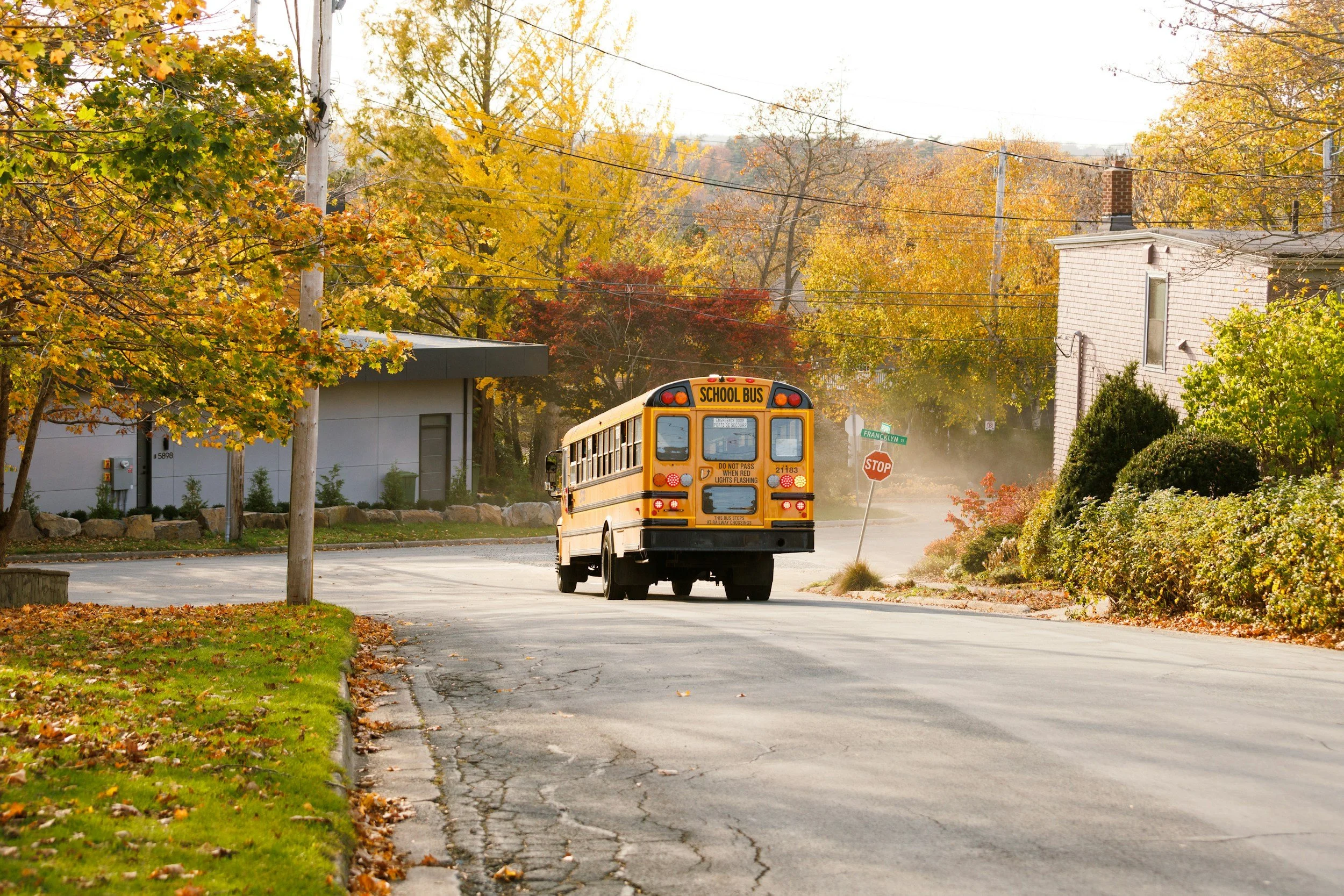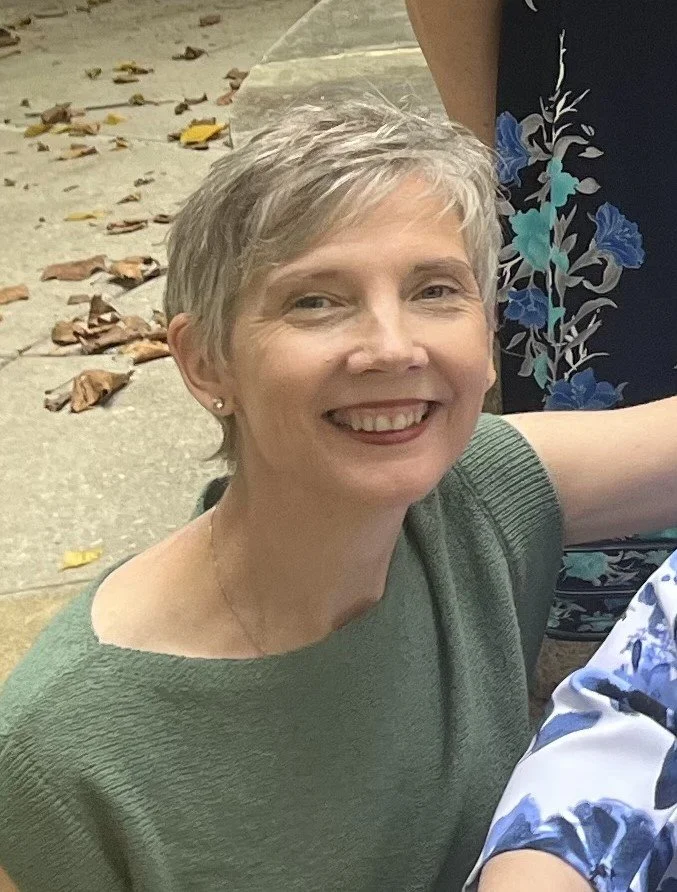In the Direction of My Heart
“Mama, when are we going home?” my son whispers, his eyes glued to the car window.
I grip the steering wheel and glance behind me. His flip-flops and beach towel are strewn across the back seat. His goggles, around his neck. Pinkish popsicle stains skip across his white camp t-shirt. All signs of a good summer, or so I would have thought.
I wish I knew how to answer him. I’m not sure I want to go home.
“You miss being home?” I ask.
“Yes.”
His voice is small, and I cannot seem to find mine. I tell myself that his six-year-old self cannot possibly understand why I am choosing for the two of us to stay at my brother’s house on the weekends and my friend’s house during the week. We’ve only been a family for three years. It’s the two of us. Thrust unexpectedly into a summer fraught with anxiety (mine), trauma (his), and grief (ours), I do not want to be a single mother. I do not want to be alone.
So now, in the mornings, I back down my friend’s driveway and drive north, going right past our neighborhood to drop my son off at camp. Then I rush home to shower, check work emails, and load up on whatever we need for that evening. Clean pajamas, new library books, a fresh water bottle. I whip up a cheese sandwich, grab an applesauce cup, and peel a hard-boiled egg. His lunches are always the same. He is a big fan of predictability. His early years were anything but.
I look around our home, scanning each room. No matter how hard I try, I always forget something. This is how it is now, I think to myself. I keep shoving our lives into a revolving set of plastic Jewel grocery bags that I carry in and out of homes that are not our own.
The upside of this living arrangement is that I get immediate help when things dissolve into dysregulated early childhood trauma, coupled with kicking, spitting, rock throwing, you name it. We no longer have good days, only moments. But at other people’s homes, we have distractions: trips to the grocery store with my brother on Saturday mornings, basketball with my friend’s thirteen-year-old son in the driveway, hugs that wrap around us both, and solitary moments that help me find my center again.
At nighttime, I keep to his routine no matter where we’re sleeping: on the bottom bunk in a teenager’s room or in the guest bed at my brother’s house. I read book after book to him. “Don’t stop, mama.” We both know that it’s the quiet before the storm.
A new pattern of trauma-related night wakings have resurfaced this summer after a hiatus this past year. Ever since kindergarten ended in early June, we have not slept through the night. This agonizing sleep-less-ness is now extending up to two and three hours at a time. I do not know when it will end.
You’d be surprised at the songs that come to you in the middle of the night when sleep eludes you. For me, it was as if the Sister Act soundtrack and every Catholic hymn I sang as a child became the jukebox in my overtired brain. Which is interesting because I stopped attending Mass regularly a decade earlier despite being raised in a devout family. But somehow, sitting there in our wicker rocking chair, my arms and your favorite orange and blue blanket wrapped around you, the song Hail Holy Queen Enthroned Above is my opening tune.
Well, mostly the chorus. Those are the only words I know by heart. I’d sing a chorus on repeat for a while, throwing in the occasional line or two I might happen to remember as the moonlight danced to the beat across your rug. Then it was onto the next chorus: Immaculate Mary; Where Charity and Love Prevail; On Eagle’s Wings; Gather Us In; Holy is God’s Name.
I shared this odd obsession with my best friend from the all-girls Catholic high school we both survived. She had to get it. “What is happening to me?” I implored.
“I don’t know, but your mom would be so proud.”
How true.
When I was really desperate and too spent to keep my eyes open, I’d sing a collection of popular and timeless classics like Silent Night; Joy to the World; God Rest Ye Merry Gentlemen; and of course, Ave, Maria.
I suppose, like comfort food, they soothed some part of me, holding out hope and the promise of redemption—or the miracle of sleep that I prayed desperately and even maniacally for. But the songs did not have that effect on you. Night after night (after night) in our first two years together as a family—and now again this summer—sleep was not on your agenda.
It’s 12:52 am and I’m sitting on the top wooden stair in the hallway. The light in the bathroom casts a pale yellow over everything. My friend’s daughter is snoozing in the room to my left. Her son is slumbering downstairs on the basement couch. My friend is sitting in her living room, holding my son and rocking him in her old glider. My inability to soothe him (or myself) woke her.
I wish we were all characters in The Napping House book we love to read where the dreaming child, dozing dog, snoozing cat, and slumbering mouse are happily asleep on top of the snoring granny who is in a cozy bed in the napping house.
My current wooden perch is not all that cozy, but if I lean forward far enough, I can hear my friend singing Dona Nobis Pacem. (Latin for grant us peace). Like me, it’s just the chorus on repeat. Her voice is soothing, especially on the rise and fall of the syllables. Written in the sixteenth century, that single line is so simple and straightforward—and precisely what we all need. I let the repetition wash over me too.
“What are you thinking about when you’re awake?” I hear her ask him sometime later.
“My mom.”
“What about your mom?”
“I have to make sure she is still there.”
And there it is: the weight of his six-year-old fear and the depth of his abandonment. It hollows out my insides. “I am here,” I want to holler from the top stair. “I am always here. Go back to sleep.” But my words are no match for his lived reality.
We adopted each other when he was almost three years old. He was a meager twenty pounds with a delicious giggle and soulful brown eyes. He lost his family for reasons we do not know. Then we flew to the U.S., and he lost his country of origin too. Unlike popular opinion, adoption teeters with loss, as much as it brims with joy and new beginnings.
Every doctor, counselor, and adoption specialist we’ve seen this summer has said the same thing: “This is what trauma looks like.” Some children weep; others become aggressive. Some are anxious and overly hypervigilant. And many others bury it. In order to heal, they tell me his pain has to come out. My job is to keep him safe.
And that is the downside of our new living arrangement: we are not in our home which has become the epicenter of his newfound safety. Nor are we at home within ourselves. In between deadlines at work, I obsess about nailing down every possible and unsuspecting trigger. Did my friend buy the brand of fruit snacks he loves? Did my brother remember to make him drink water? How could I have possibly forgotten his Batman book?
Time passes slowly on the top stair. The bathroom light eventually fades as I nestle back into the bottom bunk. He is dozing ever so lightly. The neon red alarm clock reads 4:36 a.m. We will be up in less than two hours to start the day. I stroke his back in tiny circles and hope to steal a wink myself. But my mind tilts on its own axis these days.
A memory comes into focus: I am on a Beloved retreat long before you enter my life. The retreat leader was charismatic and funny, telling story after story, which helped to settle my mind. Everyone told me the weekend would be life-changing, but I had my doubts and way too many unspoken fears about having to be present to myself for so long. When the retreat leader invited us to write our adult baptismal vows, I bristled.
I was in my mid 30s and struggling to understand why my body had catapulted me through menopause and left me with no other option than to accept infertility. Promises to myself seemed pointless when our bodies can betray us. I stared at my notebook. No words came. I went for a walk. I sat by the lake. I prayed in the chapel. When it was my turn to share my vow with the retreat leader, I surprised myself when I said: “I vow to come home, to turn my life in the direction of my heart.” And that direction led me straight to you: my sweet boy.
I remembered how unmoored I’d felt back then, not yet trusting that I was worthy of what I most desired: to write, to have a family, to fall in love.
Perhaps the same is true for you. You do not trust that what you love will stay.
That I will stay.
I am already awake when his body stirs. My mind is clear and unafraid. We need to go home. For him to heal, he needs to end each day and begin the next in the place that feels the most known and safe: our home, his bedroom, our universe. And maybe, if we can do that, we can start to come home within ourselves too, building a bond that allows us to grow into the kind of family I want us to be: a family that is free to laugh, to weep, to kick and flail, to fall down and get back up, to heal.
A week passes and I summon all my courage. I turn the key in our front door, a gaggle of Jewel grocery bags dangling off my wrist. We step into our hallway where we race Matchbox cars and play hockey with plastic golf clubs and bouncy light-up balls.
“Finally,” my son says. “I’ve been waiting for so long.”
My nerves are wrecked by the time bedtime arrives. We played with his toys, swung on the swings at the park down the street, sat on the playroom floor, cross-legged with him in my lap, reading book after book. I’m the one who is hypervigilant now. I keep waiting for a trigger, some unexpected dysregulation, something that will make us unravel. Instead, he slips on his pajamas and brushes his teeth without complaint. We snuggle in our rocking chair, and I start to sing Dona Nobis Pacem (on repeat) as dusk begins to fall outside our window. That night, our first night back at home, sleep claims us both.
Other nights are not so easy. We have our good days and our not-so-good days as summer lumbers on. He is learning to swim which is a delight to watch. On family visit day, the teenage counselors line up the six-year-olds on the side of the pool. They’re all antsy with anticipation, randomly twirling in circles, splashing in the puddles, tugging at their suits or their hair or their friend’s hair, and squealing at higher than usual pitches as they jump “on three” into the cool blue water. There is nothing but joy and abandon on his face.
But the very next week, a tantrum erupts as he is getting ready for bed. Over what, I no longer recall. We are both exhausted from the day. I react, which escalates his behavior and fuels my own adult tantrum, which makes everything worse. Frustrated with myself, I pick him up and carry him over my shoulder like a sack of potatoes (as we say). He giggles at first and then starts crying when I walk outside to the car and plunk him down in his car seat. I pull the car out into the street as calmly as I can and then fly down the freeway with no real destination in mind.
I stop yelling somewhere around the twenty minute mark. He dozes off around the forty-five minute mark. And we make the full loop back home around the ninety minute mark. It’s dark now and well past his bedtime. I slip his arms around my neck and give him a piggyback ride. He nestles his head against my shoulder blades in that surprisingly sweet spot.
“It’s okay,” I say. “We get to fall apart. Sometimes it’s you. Sometimes it’s me. Tonight, it was both of us. What matters is that it’s over. We are safe and we love each other.”
Once inside, he ambles groggily down the hallway toward the bathroom. I grab his pajamas and meet him there. He leans into me hard, wraps his arms around my waist, and hugs me for what seems like a very long time.
Fast forward, Dona Nobis Pacem will be the song I sing whenever you cannot sleep. When you are anxious all week about your first-ever soccer club tryout. When you have to present at school. When our choice for movie night is too dramatic or too suspenseful and your mind floods with endless plotlines. When you cannot wait another day for your birthday.
I will also sing Dona Nobis Pacem when things fall apart. When you are eight years old and get locked in the bathroom. When you are nine and you bite through your bottom lip. It’s the middle of the pandemic. A visit to the emergency room is too risky, so we snuggle in bed with an ice pack and our family anthem. When you are eleven and your front tooth breaks in two against the hardwood floor in the school gymnasium. At your request, I will sing Dona Nobis Pacem for the entire double root canal. Even the endodontist will comment on how soothing she found it.
And I will sing it to myself on the days when my not-enough-ness surges. I still remember that one afternoon that summer. I had about twenty minutes before camp let out, so I wandered down a short hiking trail. To my surprise, the yellow wildflowers yielded to a cluster of willow trees on the bank of a small pond. A grey heron sunned itself in the still water.
Captivated, I slipped the long, leafy willow leaves in my hand, fingering them like a rosary. “Will you hold my sadness?” I whispered to the willow tree as my litany of shortcomings—everything I had hoped I would be as a mother and everything I am not—poured out of me. My lament streamed down my cheeks as the willow and the heron listened, undisturbed.
Standing there, on what felt like holy ground, I started to hum Dona Nobis Pacem. After a few rounds, I started to sing, softly at first and gaining volume with each chorus, emboldened by a choir of cicadas who had joined in my petition. By the time I walked back to our car, and you jumped into my arms, I had found what I was looking for.
“Now your day will end happy,” my son announces one afternoon. He’s come running into the kitchen, his eyes wide and his face expectant. He is holding the missing ring from a trio of thin metal rings I wear on a necklace. It was a gift on my first Mother’s Day. We lose so many things in our home: yellow Lego heads, puzzle pieces, game tokens, socks, reading glasses. But when I realized I’d lost one of the rings, I burst into tears.
“What’s wrong, mama?” he’d asked.
“It’s okay,” I assured him. “I lost something I love, but it will show up.”
And it did. I scoop him up in a hug, and we twirl around the kitchen. “Thank you, my love,” I say over and over again, both of us triumphant.
This story—our story—ends happy too. First grade finally begins, and we settle into a familiar routine. He starts sleeping through the night sometime in late October. I cry in relief. Years later, both of us will understand trauma in a more nuanced way. We will realize that kindergarten ending and missing his beloved teacher had felt permanent. It was one more loss that he had no control over. One more loss that happened to him. One more loss that he was powerless to change. And that combination most likely triggered all the other losses he’d been carrying inside—and his desperation to hold onto what mattered most.
For me, I spent most of that summer believing I had lost my son, that our connection was forever shattered. But as it turns out, all the daily unraveling (his or mine or ours) forge new layers of trust and build muscle memory as a family: We fall apart and we get back up, together.
In an unexpected twist of transcendence, I begin to hear whispers of gratitude as the year moves on. Not for the strife we endured, but for the opportunity to hold my son’s greatest fear and carry it with him out into the light where all healing begins. That is our homecoming.
-Karen Skalitzky
Karen Skalitzky is a writer and a mom. A former educator, she currently serves as a communications director for an international nonprofit. Her writing has appeared in Motherwell, HerStry, Minerva Rising Press, and Raise Magazine.




